
THE BEGINNING
Mzungu Project began for Rubens as a means to secure competition level coffee for the Italian Brewers Championship. Initially needing only around 20-30kg, he realised quickly this small amount of coffee wouldn’t move the needle much in helping the farmers he was working with and coming to know well. For that he’d need to set up direct trade, which would also give him the opportunity to be involved in the processing of the beans, allowing him to experiment with different techniques. For first harvest, he bought the entire production 3200kg of dried cherries. After hulling this left him 28 60 kg bags of green beans. Rubens goes on to say:“Uganda, nevertheless, has competitive advantages such as healthy soil and traditional old varieties like SL14.”After finding the right local business partner, Dison, Rubens discusses the project with him through close correspondence and leaves for Uganda.Here, Rubens shares with the local farmers the best practices in sorting and selection, fermentation and drying the cherries. He also encourages women and girls, precise and attentive, to actively participate in the production. As a consequence, the quality of the farm’s production improves and Mzungu Project sees the light.Seven experimental microlots were created with the application of different techniques, to find the right key to an incredibly rich, complex and original product.

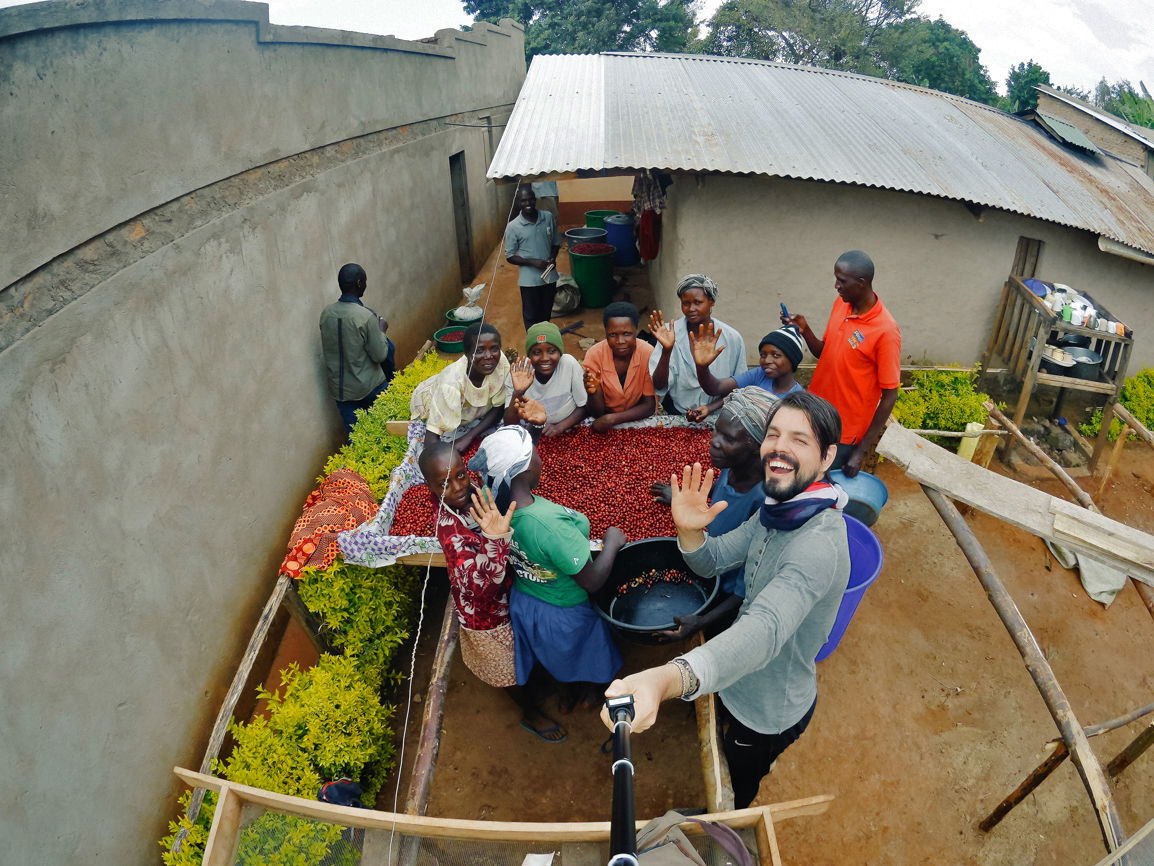
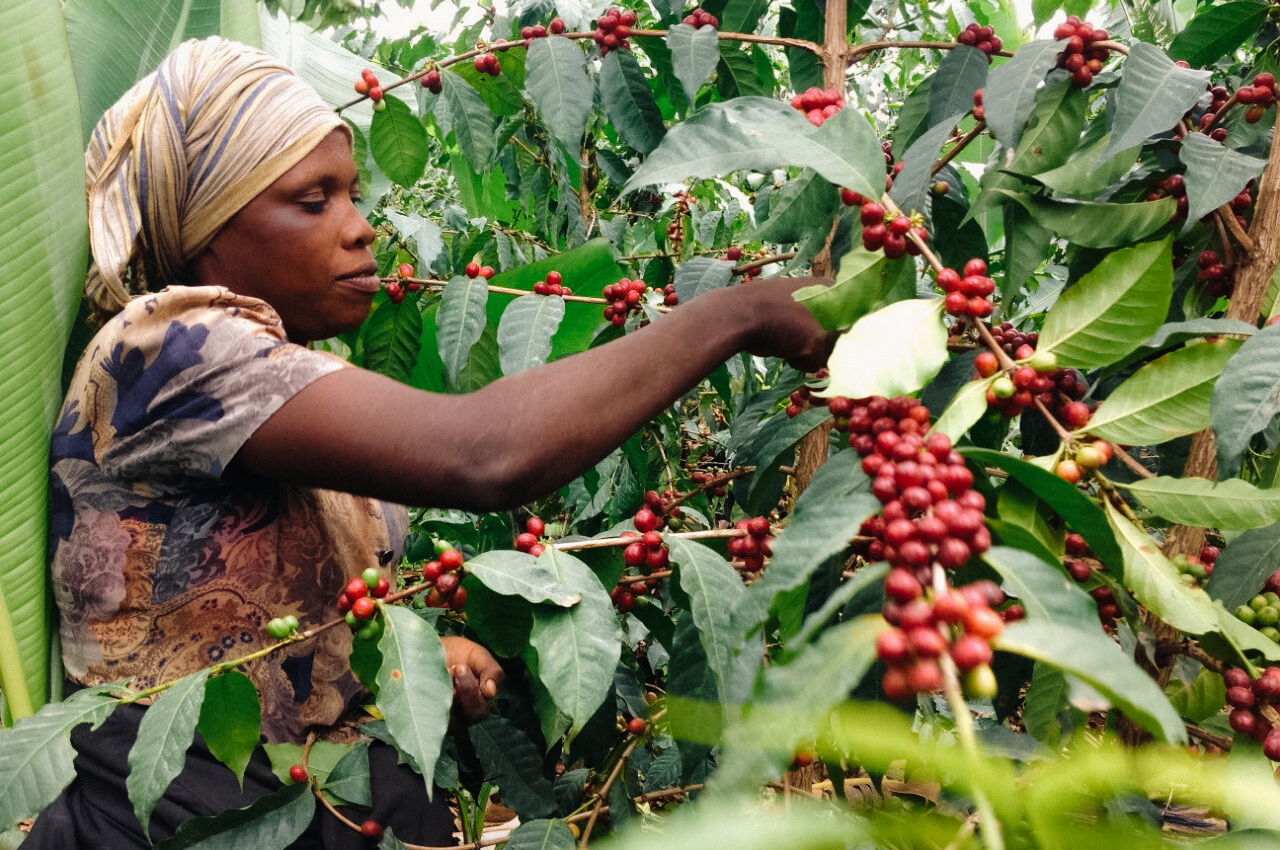
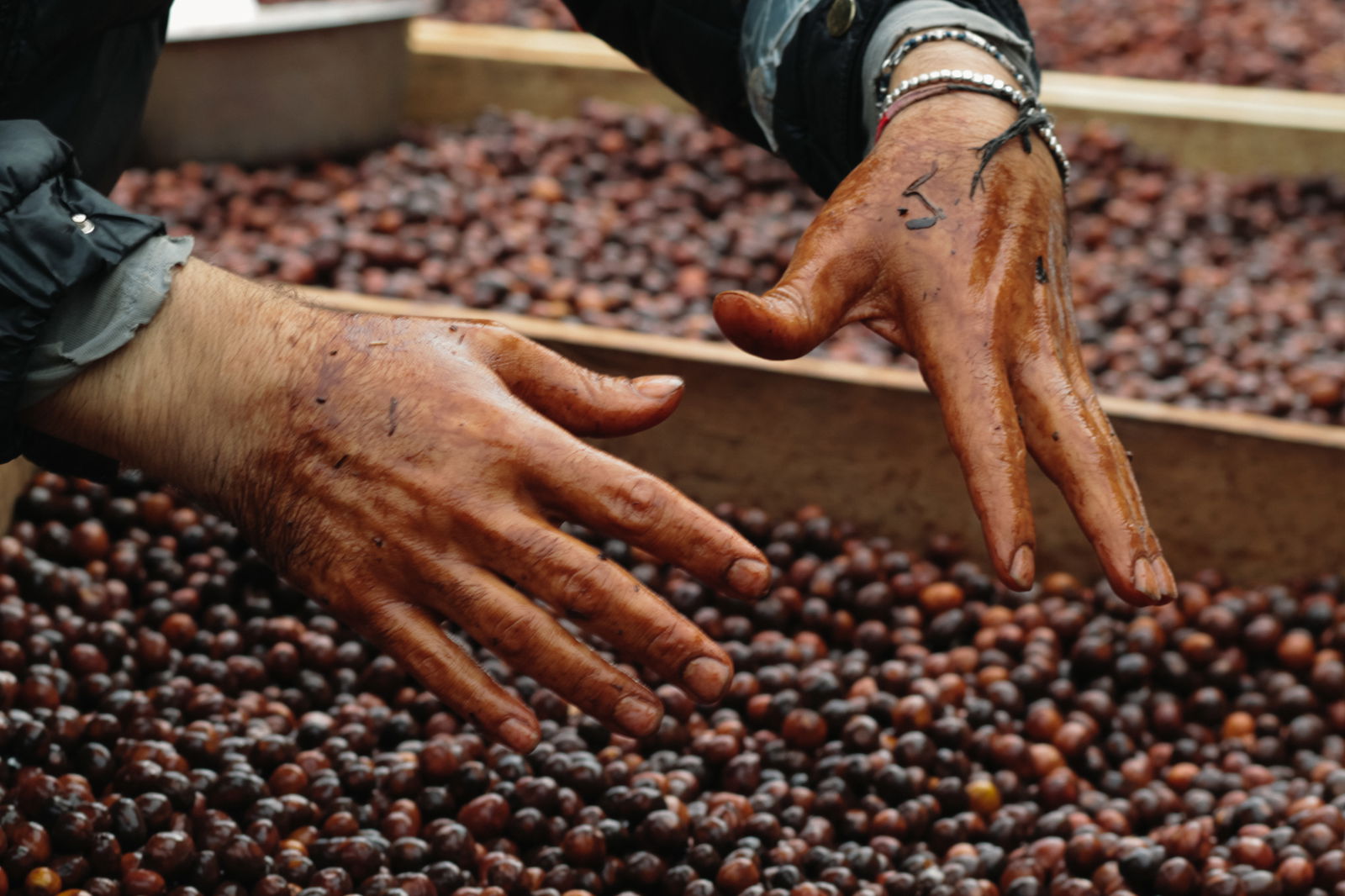
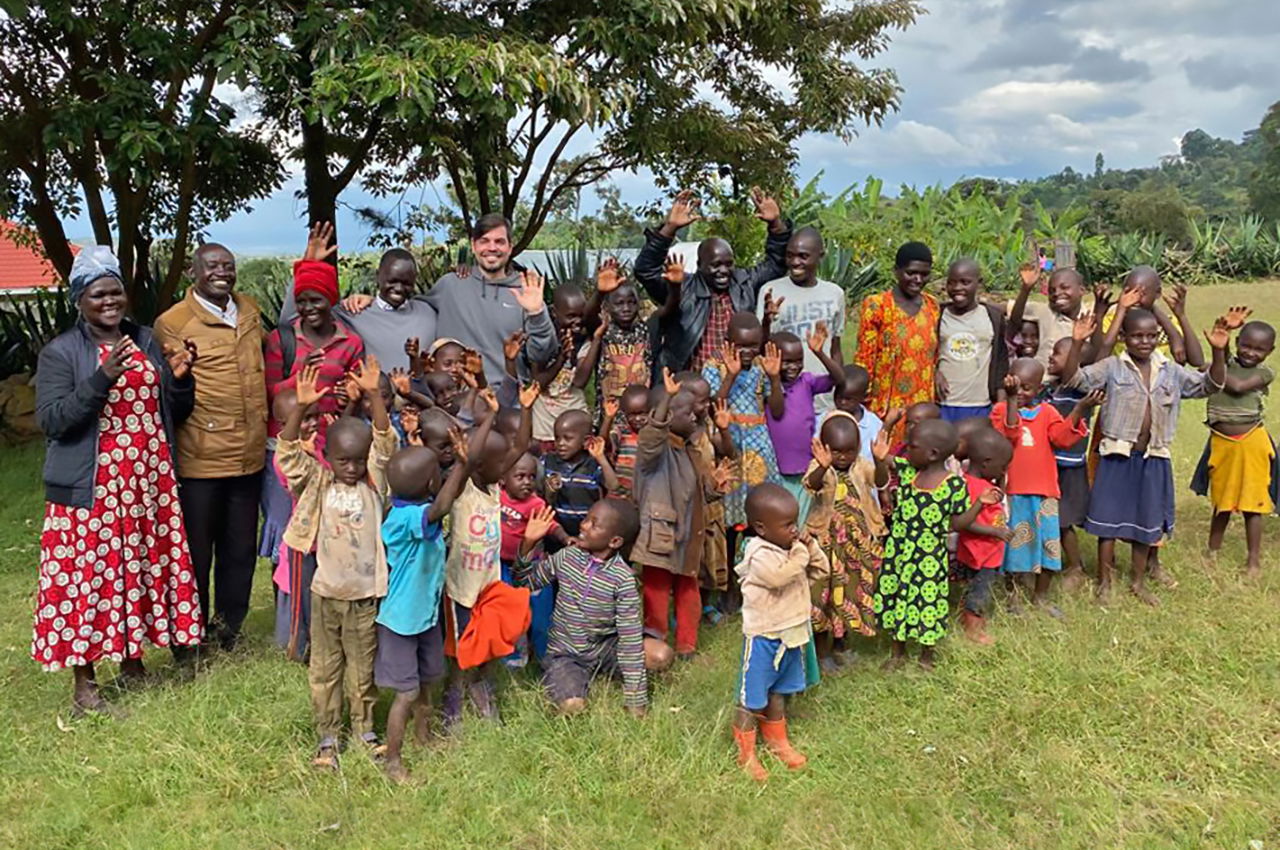
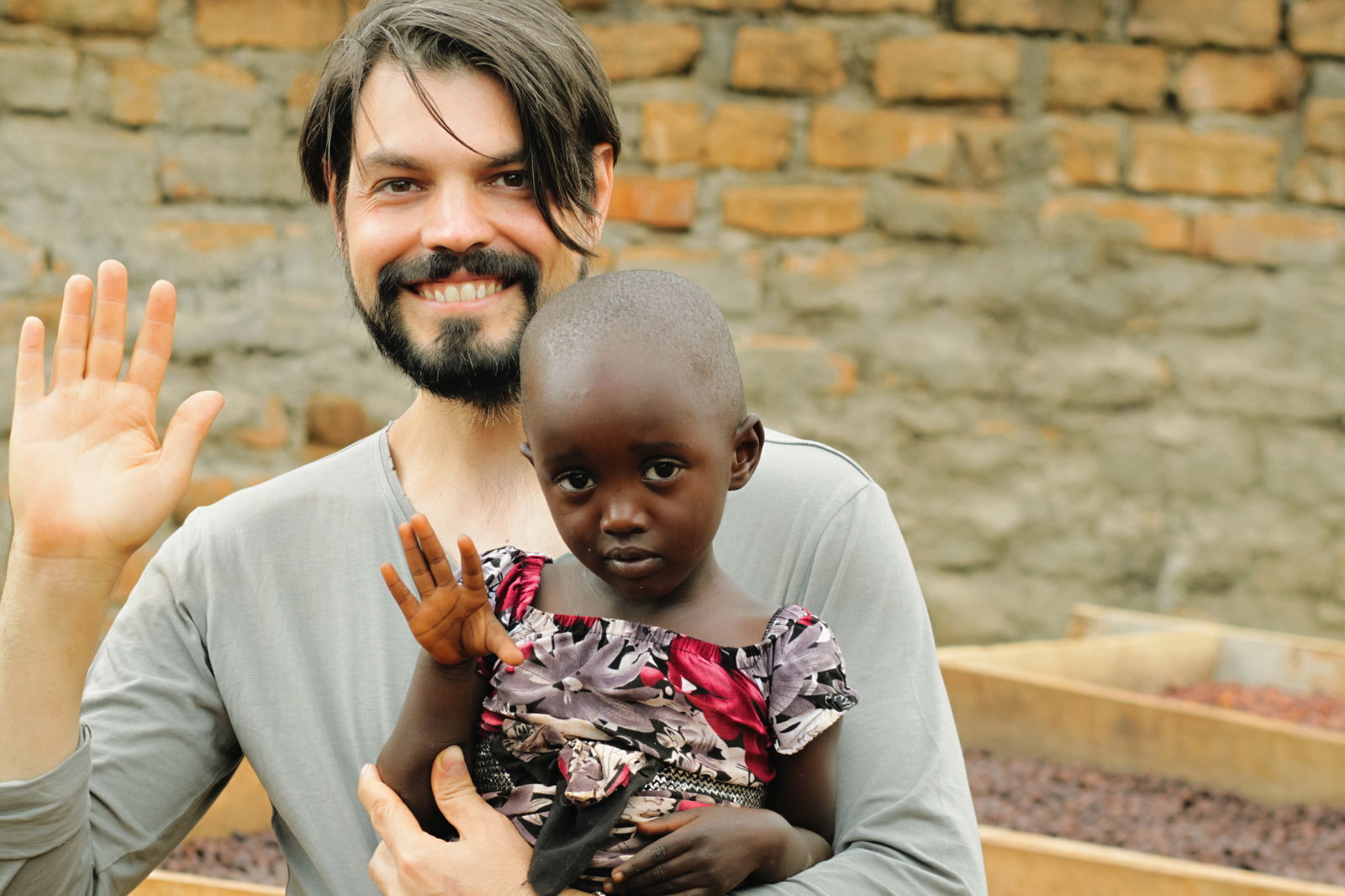
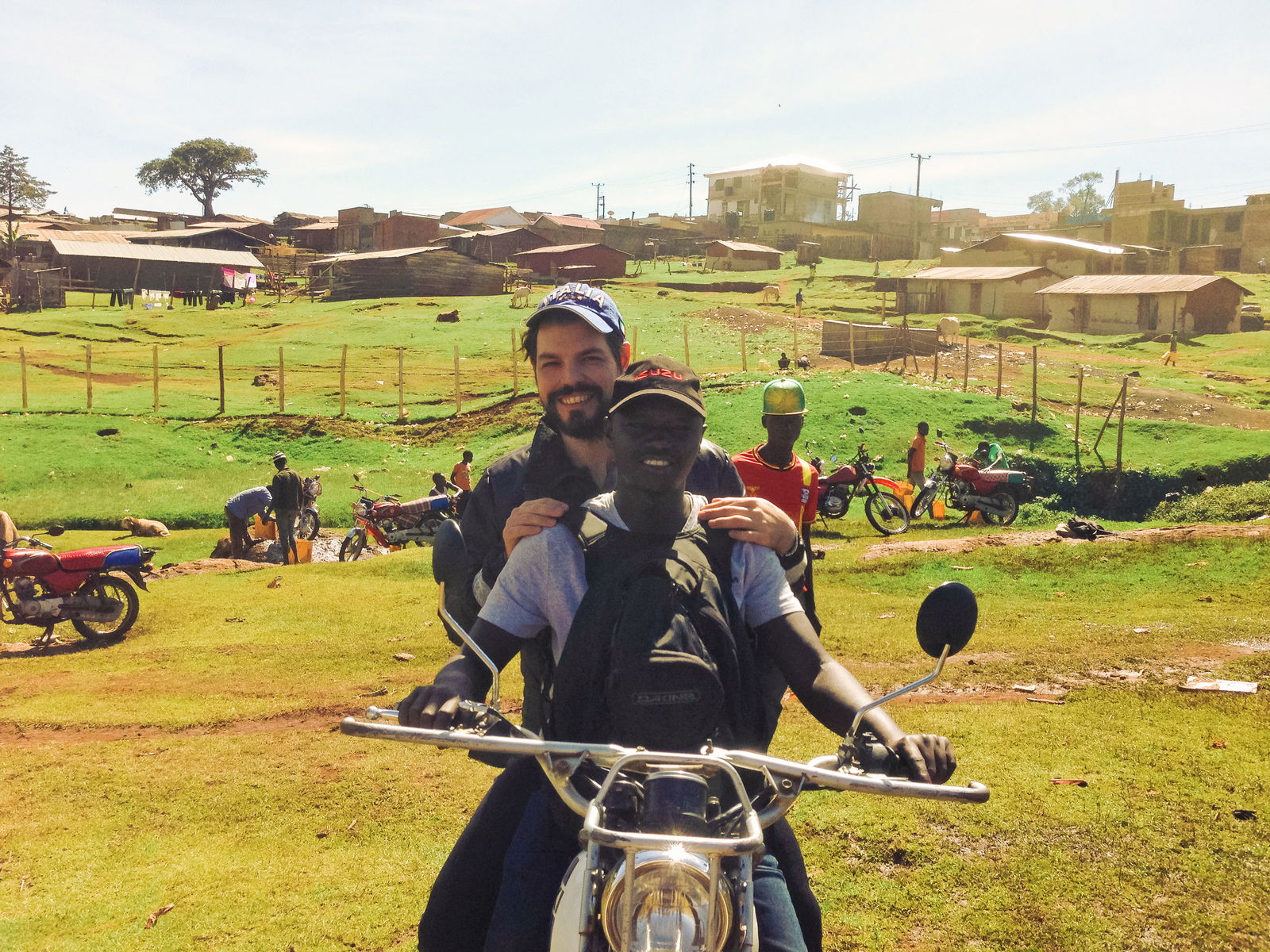
SHARING BEST PRACTICES
“The project started immediately, by building a centralized processing and milling station in the same location to keep everything traceable. Everything was going to be managed and we could know which farm every coffee was coming from. The main idea was still to change farmer’s life, so I payed about 50% more than other people did in the past, with only one request: Quality!”
A project that started from an artisan production in a small Italian town has brought well-being and gratification to both parts and established a partnership set to grow.“Changing the approach that people had [to] coffee in Uganda is one of our biggest achievements, and emotional fulfillment […] From my experience I learnt that in Uganda ordinary and simple have left the country!”Fun fact to wrap it up: “Mzungu” means “a white man”. This is how the locals called Rubens, riding the farms on his bike.
A project that started from an artisan production in a small Italian town has brought well-being and gratification to both parts and established a partnership set to grow.“Changing the approach that people had [to] coffee in Uganda is one of our biggest achievements, and emotional fulfillment […] From my experience I learnt that in Uganda ordinary and simple have left the country!”Fun fact to wrap it up: “Mzungu” means “a white man”. This is how the locals called Rubens, riding the farms on his bike.
Credits: Cristina Caroli - Aroma (European Coffee Trip)
COFFEE FOR BRIGHTER FUTURE
The project continues to thrive thanks to the productive collaboration between Rubens and the local partners.This deep connection has resulted not only in an unmatched quality of coffee - it has also made a significant impact on the lives of those involved.Francis Kipsang, a coffee farmer, saw his dreams come true thanks to this partnership. With the earnings from the sale of his coffee, roasted by Rubens, Francis managed to build a new home for his family and enrol his son in university, thus opening the door to a promising future.But Rubens' dream doesn't stop there. His longtime dream is to construct a new school for the children in Sipi Falls. This school will serve as a beacon of hope and opportunity for the younger generation, offering them a high-quality education and a chance to pursue their dreams.This remarkable collaboration between Rubens Gardelli and the local Ugandan coffee producers is an exemple of how the business world can have a positive impact on the lives of communities and individuals. It is a success story that illustrates how coffee can be more than just a delicious beverage: it can also be a vehicle for hope and change.Together, Rubens Gardelli and the Sipi Falls community are shaping a brighter future, step by step.

If you'd love to see more Mzungu Project's behind the scenes and Official videos,
make sure you scroll through this playlist or if you don't want to miss anything, subscribe to our YouTube channel.
make sure you scroll through this playlist or if you don't want to miss anything, subscribe to our YouTube channel.


